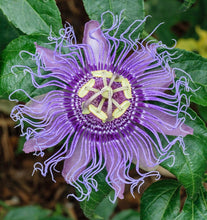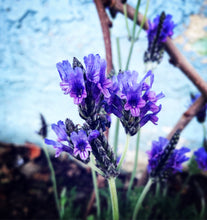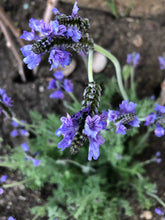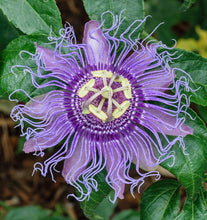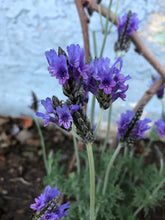Passionflower Tincture (Passionflower & Vanilla)
Regular price
$20.00
Sale
A thoughtful blend of our most potent herbs for relaxation.
Passion Flower is combined with Chamomile and Lavender to make this a powerful, yet gentle relaxing experience.
Passion Flower: This stunningly beautiful flower is native to the Americas where it has been used for centuries to heal bruises and cuts. Modern day herbalists recommend it as a powerful nervine tonic to treat stress, anxiety and to help the mind prepare for a restful night’s sleep.
Chamomile: One of the most ancient plants in modern use, chamomile has a history stretching back at least 3,000 years as a medicinal plant. From the Greek word for ground apple, chamomile has been used as an age old remedy by many ancient civilisations. The Romans were prescribed this herb by the noted physician Pliny, to ward off headaches, ease liver and kidney inflammation and facilitate digestion. The Greek physician and botanist Dioscorides used chamomile to heal intestinal, nervous and liver disorders and prescribed it for women’s ailments. Chamomile was considered one of the nine sacred herbs of the Anglo-Saxons and was used ritually to ward off diseases and to promote health.
Medicinal plants such as this one contain a complex series of phytonutrients that work individually and collectively to ease a wide range of complaints. Whilst science tries to find “the chemical” that makes a plant effective, in reality it is the combined workings of these compounds which ultimately provide relief.
Lavender:
Lavender has been in documented use for over 2,500 years, with its name coming from the Latin root “lavare”, meaning “to wash”. It most likely earned its name because it was frequently used in baths to purify the body and spirit.
Lavender was used by the Ancient Egyptians for embalming and cosmetics, jars have been recovered from tombs filled with unguents containing this herb. These were only used by royal families and priests in massage oils and medicines. When King Tut’s tomb was opened in 1923, there was said to be a faint scent of lavender that could still be detected an incredible 3,000 years later.
Queen Elizabeth I is reported to have drunk Lavender tea to treat her frequent migraines, with its history of traditional use ranging from the treatment of lice to use as a sleep aid and a calming restorative. Lavender has been used for millenia to relax and calm the mind - pillows were stuffed with dried lavender flowers, so important was this herb deemed to be for a good night's sleep.
CONTAINS: CHAMOMILE, PASSION FLOWER, CALIFORNIA POPPY, LAVENDER AND LOVE in 101 proof Wild Turkey Kentucky Bourbon
Special Attention
The botanical materia medics, wares and recipes of this website are NOT INTENDED TO REPLACE THE SERVICES OF PHYSICIANS.
By all means see a physician when a condition requires his services.
There is ample proof that that botanical medicines have been used for thousands of years, and it is reasonable to believe that they were also used by primitive man to survive diseases, and the rigors of aging.
None of these products have been evaluated by the FDA.
Many botanicals offered at Starfish Honey are recognized in the United States and foreign pharmacopias. Many of them have been discarded for stronger, more certain, synthetic drugs, or other reasons.
Modern science is now reevaluating many of the old time botanicals, and searching jungles and distant places to seek remedies from aboriginal races.
The future of human medicine may very well rest in the methods of our ancient ancestors.






